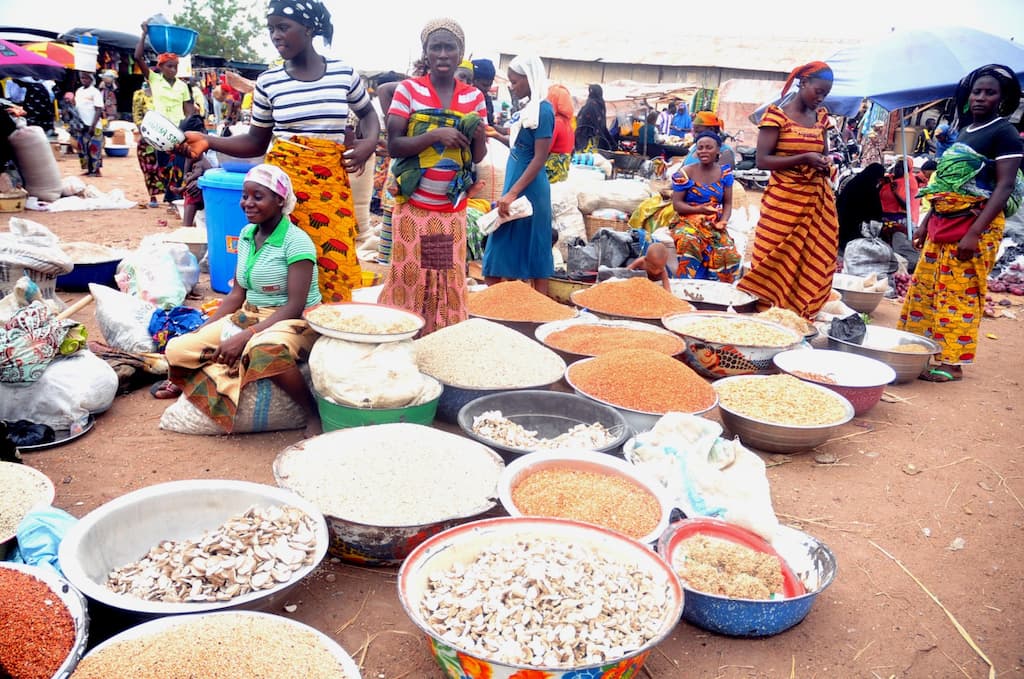According to the 2022 Global Hunger Index, Nigeria is ranked 103 out of 121 nations, indicating that the country “has a level of hunger that is serious.”
On Friday, the German-based Welthungerhilfe and the Irish-based Concern Worldwide jointly released the Global Hunger Index.
Nigeria had a score of 27.3 in the study’s “severity” rankings, placing it in the “severe” category for hunger.
Each nation is categorized into one of five hunger levels according to the index: low, moderate, serious, alarming, and extremely alarming.
Nigeria’s position on the scale hasn’t changed for the past two years in a row. Nigeria, the most populous country in Africa, was placed 98 out of 107 countries in 2020 and 103 out of 116 in 2021.
GHI
The GHI is a method for fully assessing and monitoring hunger at the international, regional, and national levels. Undernourishment, child stunting, child wasting, and child mortality are its four component indicators, and their values form the basis of its ratings.
According to the 2022 report, 12.7% of Nigeria’s population is undernourished. Additionally, it reveals that the country’s under-five population includes 6.5% wasted children and 31.5% stunted children.
Additionally, it shows that 11.4% of Nigerian children pass away before turning five.
Undernourishment is the percentage of the population that does not consume enough calories, whereas child stunting is the percentage of children under the age of five that have stunted growth for their age as a result of chronic undernutrition.
Child mortality, on the other hand, denotes the share of kids who pass away before turning five, partially reflecting the fatal combination of inadequate nutrition and unhealthy environments. Child wasting, on the other hand, denotes the share of kids under five who have low weight for their height, reflecting acute undernutrition.
A GHI score is derived from the values of the four indicators and represents the intensity of hunger on a scale of 0 to 100, with 0 representing the best possible score (no hunger) and 100 representing the worst. The severity of each country’s GHI score is ranked from low to extremely worrying.
According to the research, 17 nations with a GHI score of less than 5 shared first place, including China, Hungary, Montenegro, Uzbekistan, Russia, and Saudi Arabia.
This year, no nation has been classified as extremely worrying.
world trends
The analysis estimates that 828 million people worldwide experienced hunger in 2021, up roughly 46 million from 2020 and 150 million since the COVID-19 pandemic’s breakout.
The index shows that the regions with the highest rates of hunger are “Africa South of the Sahara” and South Asia, where the fight against hunger has stalled in recent years.
Conflict, climate change, and the economic effects of the COVID-19 pandemic—all of which are potent drivers of hunger—are currently colliding and are likely to get worse, according to the paper.
Food shortages in 2023 and beyond may result from the war in Ukraine, which has driven up the price of food, fuel, and fertilizer globally.
The analysis projects that, by 2030, hundreds of millions of people would still be suffering from hunger, falling short of the goals set by the United Nations.
Réiseal Chéilleachair, the organization’s head of advocacy, said in a statement that was posted on the Concerns website that “although we may not be able to solve hunger by then, we can stop it traveling in the wrong direction.”
According to her, the sheer amount of shocks individuals are going through shows that more work needs to be done to improve food, nutrition, and livelihood security globally.
According to her, “the interdependency of the food system is evident in how shocks in one nation can have a direct influence on the purchasing power and food intake of households in another.”
Reality in Nigeria
Nigeria’s stance on the GHI is hardly breaking news because earlier reports have warned of a hunger problem there and how it would affect the populace, particularly children.
According to a 2021 UNICEF research titled “Fed to Fail,” many children under the age of two are not getting the food and nutrition they require to grow healthily, which can cause irreparable developmental impairment.
According to the paper, children’s fast developing bodies and minds can be harmed by dietary intake in the first two years of life, which will have an effect on their futures.
Rushnan Murtaza, the deputy representative for UNICEF in Nigeria, had stated that the report’s conclusions were “clear: millions of young children are not being served diets appropriate for their growth and development.”
In a separate assessment released in March, the United Nations Food and Agriculture Organization forecasted that between June and August of this year, 19.4 million people in Nigeria will experience food insecurity.
The research also reveals that at the time of the report, roughly 14.4 million people—including 385,000 IDPs in 21 states and Abuja—were already experiencing a food crisis.
Majority of the blame for Nigeria’s food crisis is placed on the widespread insecurity that plagues the nation.
Nigeria, and more specifically the Northern area, has endured a decade or more of continuous attacks from terrorist organizations like Boko Haram and the West Africa Province of the Islamic State (ISWAP).
Millions of people have been internally displaced as a result of the violence, which has killed thousands of people, destroyed agricultural productivity and other sources of income, cut off essential utilities, and caused.
According to researchers, if Nigeria doesn’t confront and resolve its security issues, more people would go hungry in the future.
“Action must be taken immediately to reestablish food security on a fresh, long-term basis. Failure to act now would result in a terrible and widespread food crisis later on, Ms. Chéilleachair said.
